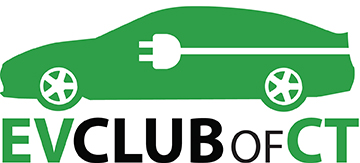EV Manufacturers/Dealers Offering Consumer EV Leases, Incentives Included
This is a follow up to a post from January 5, when we first published about a surprising turn of events with respect to eligibility for the electric vehicle (EV) incentives that are part of the Inflation Reduction Act.
As we have written here and other places, while the Inflation Reduction Act, IRA, has a lot to recommend it, the design of the consumer EV incentive is overly complicated and confusing with numerous restrictions on which cars and individuals qualify.
In a counter-intuitive twist, the complex became simple, at least for leasing customers. While there are all sorts of restrictions around whether a vehicle or a purchaser qualifies for the tax credit, the IRS issued guidance on 12/29/22 that a consumer lease should be considered a commercial transaction. The commercial EV incentive has none of the restrictions that apply to a consumer purchase. Whatever the vehicle cost, wherever it is made, no matter the body style, it qualifies for the $7500 maximum incentive. (If you want to know the details of those consumer restrictions, see our incentives page.)
The IRS logic here is that the dealer or manufacturer sells the vehicle to the finance company which holds the title. This is a commercial transaction. The fact that the finance company then executes a lease with a consumer is beside the point. As such, it falls under the rules for commercial incentives, which are governed by a separate provision in the law that does not impose the consumer restrictions.
We are now seeing examples of this in the marketplace. The photo at the top of the post is of an ad for a Lucid EV. A recent entrant as an EV-only startup, Lucid makes ultra high-end EVs that, judging by the reviews, are pretty great. Car and Driver described its “unbeatable range and great performance.” However, the Lucid far exceeds the price caps imposed on the EV incentives in the IRA. But with a lease, voila, no MSRP cap. I received similar information from a CT dealership company that sells Hyundai and Genesis vehicles, that they have received new lease pricing that reflects the incentive. Both of those vehicles are manufactured in South Korea and thus run afoul of the North American final assembly rules if purchased.
Delay in Battery Rules
For buyers there is another loophole, for want of a better word, that gives the consumer a break, albeit temporarily. The IRS has not finished writing the regulations for the battery mineral sourcing/refining and manufacturing requirements. As a result, the incentive defaults to the old battery rules until the IRS issues these new regulations. They have said this will happen in March. In the meantime, we are now in a period where incentives are likely to be higher for most, if not all, EVs than they will be in a few months. Buy now, but be sure to take physical possession of the vehicle before the battery rules take effect or risk losing the incentive.
Manchin Agonistes
It has been widely reported that Senator Joe Manchin is not happy about either of these two developments. As reported in The Verge, he has introduced legislation to delay the implementation of the incentives until the IRS finishes its rule making, and to claw back incentives that may have been granted under the IRS interim rules.
Manchin is also not pleased about the IRS interpretation of leasing as a commercial transaction and may try and correct that legislatively as well.
I doubt Manchin’s legislative proposal(s) will become law. The House is too preoccupied getting its house in order. And what appetite will the Senate have to revisit this hard-fought reconciliation-passed bill? Nobody else in either chamber seems to be all that concerned about either of these developments, at least not on the record.
I think Manchin genuinely wants to bring manufacturing back America. I’m not so sure he cares about people buying EVs. The threat of a retroactive restriction and claw back only punctuates this. Part of the cleverness of the IRA is that it strikes a balance of both supply side and demand side incentives. But when it comes to EVs, the design of the consumer EV incentive is so perversely self-defeating, that with respect to Senator Manchin, this feels like karma.
Update: As reported in Reuters, Manchin tried to get his bill passed on January 26th by unanimous consent, but it was blocked by Sen. Debbie Stabenow of Michigan. She is quoted saying, “It is not unreasonable what Treasury is doing … they have been given an incredibly complicated task to try to figure out how this consumer credit will work.” Separately, she also noted the inherent unfairness of this bill to consumers in that it “would literally take away credits from people who are buying cars today … Fundamentally, (Manchin) is not a fan of EVs.”
The usual disclosure: This information is accurate to the best of our knowledge. Always check with an accountant when it comes to tax matters.

